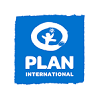The Economic Community of West African States (ECOWAS) is a regional group of fifteen West African countries. Founded on 28 May 1975, with the signing of the Treaty of Lagos, its mission is to promote economic integration across the region.
We are recruiting to fill the position below:
Job Title: Council Member, Economist (ERERA)
Job Code: 20000776
Location: Accra, Ghana
Grade: D1
Line Supervisor: Chairman ERERA
Status: non-renewable term of five (5) years
Supervising: Senior Economist Office Manager
Agency: ECOWAS Regional Electricity Regulatory Authority (ERERA)
Institution: ECOWAS Regional Electricity Regulatory Authority (ERERA)
Role Overview
- Under the supervision of the Chairman ERERA, the incumbent shall ensure jointly with the other members, the regulation of cross-border electricity exchanges, in accordance with the provisions of Community texts.
- He shall be appointed on full-time basis and for a non-renewable term of five (5) years.
Role and Responsibilities
- Participating in the Council’s deliberations.
- Guiding the Council in the development of Council’s Regulations relating to the economic regulation of the regional electricity market, particularly in the area of structuring and monitoring market operation, long-term financial viability, economic prospects, pricing/tariffs, competition and infrastructure development.
- Assisting the Chairman of the Regulatory Council in carrying out his responsibilities, particularly the organization, monitoring and supervision of all ERERA’s activities, preparation of the annual report as well as preparation and implementation of ERERA’s budget.
- Supervising the economic analysis of the energy sector.
- Supervising the Financial Planning and Modeling of the energy sector.
- Steering institutional reforms and energy policies.
- Steering economic issues related to cross-border electricity exchanges and interconnection agreements.
- Ensuring the management of electricity markets: planning, tariff/pricing, competition, funding.
- Perform any other task as assigned by the Chairman.
Academic Qualifications and Experience
- Master’s Degree in Economics, Finance or Management or Energy Economics/Regulation or in a related field from a recognized University.
- Twelve (12) years professional experience in planning, financial modeling and economic analysis of the energy sector.
- Experience in a management position, preferably in a regulatory body.
- Five (5) years’ experience in team management, preferably in a supervisory capacity, within an international organization or national electricity/energy regulatory body.
- Knowledge of energy policy issues, in particular electricity sector institutional reforms, as well as economic issues related to cross-border electricity exchanges and electricity market management (planning, tariff/pricing, competition, funding, etc.).
- Deep knowledge of Power Purchase Agreements(PPAs) at national and/or regional levels.
- Knowledge of Community institutions and mechanisms within the ECOWAS region, as well as proven experience in the area of electricity sector regulation in Africa.
- Knowledge of political matters in West Africa and of the political mechanisms of the United Nations, the African Union, the European Union, etc.
- Experience in international relations and negotiations will be an added advantage.
Age Limit:
- Be below 50 years old. This provision does not apply to internal candidates.
ECOWAS Key Competencies
- Senior leadership experience in establishing strategic partnerships, working collaboratively and building consensus with multiple internal and/or external stakeholders on complex issues in a multi-disciplinary governmental or international organization.
- Knowledge of the ECOWAS mandate, strategic plan/priorities as well as the economic, political and social state/trends of Member States, as pertains to own scope of work.
- Consistency in actions, values, methods, confidentiality, ethics, measures, principles, expectations and outcomes which connote a deep commitment to do the right thing for the right reason, regardless of the circumstances.
- Ability to establish and maintain effective working relationships with Heads of Institutions, elected officials and statutory employees to facilitate compliance, build engagement, resolve conflicts and obtain support for change.
- Ability to respect chain of command in an appropriate manner.
- Ability to promote a culture where people hold themselves personally accountable for results.
- Ability to provide leadership, management, and technical oversight for all project activities and program deliverables in accordance with ECOWAS legal and administrative practices and standards.
- Ability to conduct periodic reviews of staff performance in keeping with the ECOWAS performance management system and to mentor staff to ensure high levels of motivation, commitment, capacity, and teamwork.
- Ability to oversee project management, internal controls and stewardship of financial resources and to address issues in a confident and capable manner whilst making decisions that exemplify impartial and non-partisan decision-making.
- Ability to exercise the initiative and resourcefulness necessary for simultaneously addressing a variety of stakeholder needs, pursuing multiple tasks and achieving positive outcomes.
- Ability to create synergies with client groups and others to achieve objectives in setting and monitoring service standards and indicators.
- Ability to motivate and engage others in promoting or adopting best practices in client services.
- Ability to identify and improve services and client interactions through appropriate networks and to create innovative ways of addressing these in an accountable and transparent manner.
- Knowledge of anti-discriminatory/human rights regulatory environment and ability to advance strategies to foster an inclusive working environment and healthy organization respectful of cultural diversity and gender equality and free from harassment and discrimination.
- Understanding of diverse cultural views especially within West Africa, being sensitive to group differences, gender issues and ability to contribute to, advocate for, and/or develop policies which are gender sensitive and responsive to various cultures.
- Ability to foster a diverse and inclusive interactive work environment that can effectively bring together a wide spectrum of ideas and experiences to solve problems, develop projects/programs and improve results.
- Ability and responsibility for incorporating gender perspectives and ensuring the equal participation of women and men in all areas of work;
- Ability to remain objective in managing conflict regardless of cultural differences /positions, gender differences, and encourage other staff to overcome cultural and gender bias and differences.
- Understanding of the ECOWAS organizational structure, workplace culture and dynamics.
- Ability to apply knowledge of ECOWAS legal framework, strategic priorities and operational standards to develop/modernize policies and programs and/or to implement policies and programs in a sustainable and effective manner.
- Well-developed business, social and political acumen, demonstrating a strong commitment to the vision and mandate of ECOWAS coupled with a broad knowledge of the economic, political and social situations and trends in Member States.
- Sound judgment and decision-making skills on matters relating to policy and strategy development important to the realization of the ECOWAS mandate and the improvement of outcomes for Member States.
- Ability to analyze reports as well as socio-economic and institutional dynamics and recognize areas of potential obstacles or challenges and develop innovative solutions or alternatives to address barriers and achieve strategic/operational priorities.
- Ability to anticipate and interpret the effects of environmental changes (social, economic and political),and its impact and make recommendations.
- Ability to identify/address strengths and weaknesses, stimulate creativity, reduce resistance to change and improve the achievement of strategic objectives.
- Ability to make prudent decisions relating to the management of human, financial and material resources.
- Ability to actively listen and understand perspectives of others to make informed assertions, decisions or recommendations.
- Ability to build multiple external collaborative relationships to support strategic and operational objectives; identify the key issues and accommodate the key players with well thought out communication and stakeholder management plans.
- Ability to communicate with clarity and conviction, make compelling presentations which promotes new insights, ideas and perspectives and a better understanding of issues and challenges.
- Exhibit active listening skills to encourage stronger communication amongst team members, to show care and make them feel valued and to drive employee engagement in all institutions and agencies.
- Excellent negotiation and conflict management skills focusing on building and nurturing effective and collaborative relationships.
- Proficiency in information communication technologies (ICT).
- Fluency in oral and written expressions in one of the ECOWAS official languages of the Community (English, French & Portuguese). Knowledge of an additional one will be an added advantage.
- Ability to prepare plans, set clear objectives in a consistent manner and have effective oversight of performance management practices to ensure that goals and standards are met.
- Ability to set effective goals/results and manage change in a manner that demonstrates resilience, composure and a positive outlook in an environment of uncertainty and ambiguity.
- Ability to enable the development of organizational and individual talent throughout the implementation of strategic, operational, programme, project and individual plans.
- Ability to implement plans, mobilize/engage people, identify critical success factors, mitigate risks, monitor indicators and feedback, initiate corrective measure and build capacities for sustainability.
- Ability to institute rigorous monitoring, and evaluation practices and to learn from setbacks and mistakes to ensure continuous improvement.
Annual Salary
UA73,960.83 (USD 116,695.40)
Application Closing Date
31st March, 2023.
How to Apply
Interested and qualified candidates should send their Applications to: [email protected] using the Job Title as the subject of the email
More Information
- Job City Accra, Ghana





